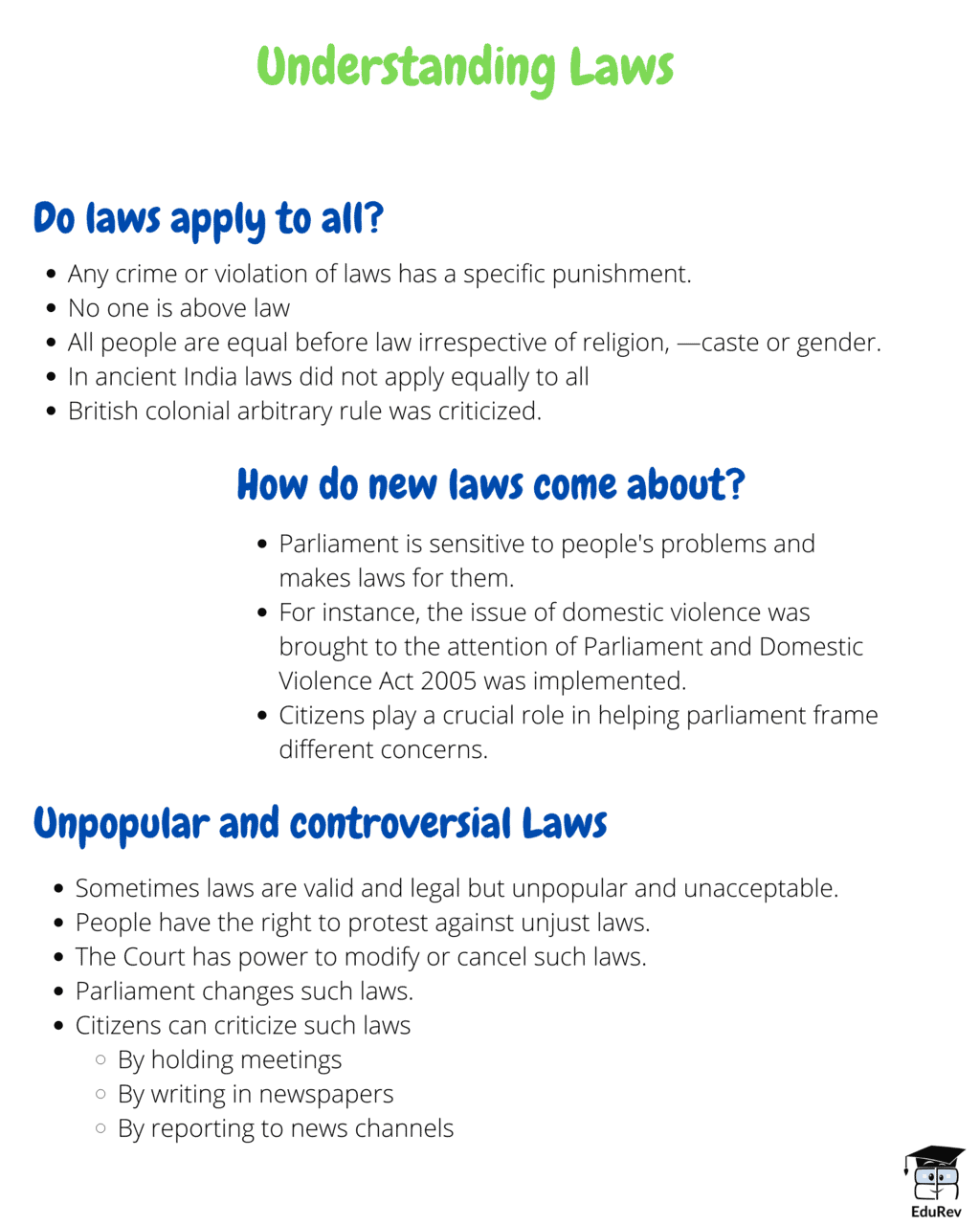UPSC Exam > UPSC Notes > Class 6 to 12 NCERT Mindmaps for UPSC Preparation > Mind Map: Understanding Laws
Mind Map: Understanding Laws | Class 6 to 12 NCERT Mindmaps for UPSC Preparation PDF Download

The document Mind Map: Understanding Laws | Class 6 to 12 NCERT Mindmaps for UPSC Preparation is a part of the UPSC Course Class 6 to 12 NCERT Mindmaps for UPSC Preparation.
All you need of UPSC at this link: UPSC
FAQs on Mind Map: Understanding Laws - Class 6 to 12 NCERT Mindmaps for UPSC Preparation
| 1. What is the purpose of laws? |  |
Ans. Laws are created to establish order and provide a framework for governing a society. They serve to protect individual rights, maintain social order, and ensure justice and equality for all citizens.
| 2. How are laws created and enforced? |  |
Ans. Laws are created through a legislative process, where elected representatives propose, debate, and vote on new laws. Once a law is passed, it is enforced by law enforcement agencies, such as the police, and through the judicial system, where courts interpret and apply the law.
| 3. What are the different types of laws? |  |
Ans. There are various types of laws, including criminal law which deals with crimes and their punishment, civil law which resolves disputes between individuals, administrative law which governs the activities of government agencies, and constitutional law which ensures the protection of individual rights and governs the structure of government.
| 4. What happens if someone breaks the law? |  |
Ans. If someone breaks the law, they may face legal consequences. Depending on the severity of the offense, these consequences can range from fines or community service to imprisonment. The specific punishment is determined by the judicial system and takes into account factors such as the nature of the crime and the offender's criminal history.
| 5. How can individuals stay informed about laws? |  |
Ans. Individuals can stay informed about laws by regularly following news and updates related to legal matters. They can also consult legal resources such as official government websites, legal publications, and seek advice from legal professionals. Additionally, individuals can participate in community discussions and engage in civic activities to gain a better understanding of current laws and proposed legislative changes.
Related Searches
















